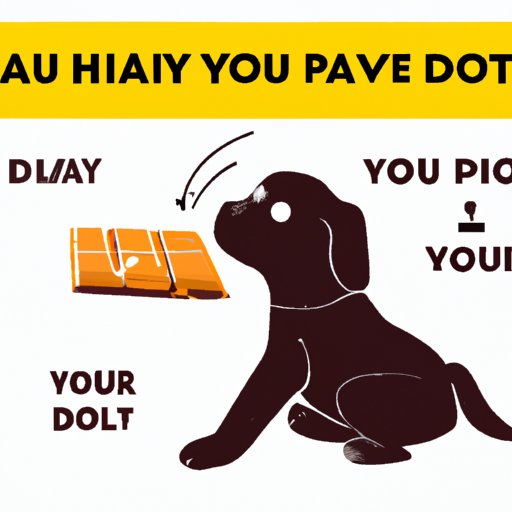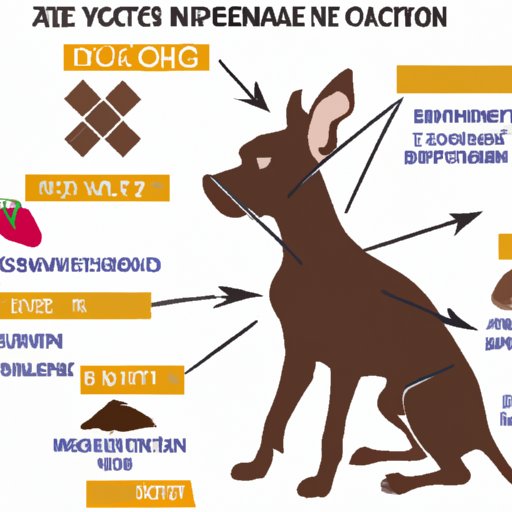Introduction
Chocolate is a tasty treat that humans love, but it can be dangerous for dogs. Eating chocolate can lead to chocolate poisoning, which can cause serious health problems for your canine friend. In this article, we’ll explore what chocolate poisoning is, what to do if a dog eats chocolate, and how to treat it.
What is Chocolate Poisoning in Dogs?
Chocolate contains two substances that can be toxic to dogs, caffeine and theobromine. The amount of caffeine and theobromine varies depending on the type of chocolate, with darker and more bitter varieties containing the highest amounts. According to the American Kennel Club, “The most dangerous types of chocolate are baking chocolate and dark chocolate, which contain the highest levels of theobromine.”
Common signs and symptoms of chocolate poisoning include vomiting, diarrhea, excessive thirst, restlessness, and an increased heart rate. If left untreated, chocolate poisoning can be fatal. It’s important to be aware of these signs so you can take quick action if your dog eats chocolate.

What to Do if a Dog Eats Chocolate
If you suspect your dog has eaten chocolate, the first step is to identify the type of chocolate consumed. As mentioned earlier, baking chocolate and dark chocolate contain the highest levels of theobromine and are the most dangerous. Milk chocolate and white chocolate contain lower levels of theobromine and are less harmful, but can still cause health problems.
Once you have identified the type of chocolate, there are several immediate steps you should take. First, contact your veterinarian or the Animal Poison Control Center for advice. Second, try to determine how much chocolate your dog ate. This information will help the veterinarian decide the best course of treatment. Finally, if possible, collect any remaining pieces of chocolate and bring them to the veterinarian.
Treatments for Chocolate Poisoning in Dogs
If your dog has eaten chocolate, the veterinarian may recommend hospitalization and supportive care. This may include intravenous fluids to prevent dehydration, medications to control vomiting and nausea, and medications to reduce the absorption of theobromine. The veterinarian may also recommend activated charcoal to reduce the absorption of toxins.
According to Dr. Justine Lee, board-certified veterinary specialist and CEO of VETgirl, “The sooner you get your pet to the vet, the better chance they have. With aggressive medical management, most dogs recover fully from chocolate poisoning.”
Conclusion
Chocolate poisoning can be a serious health risk for dogs. If you suspect your dog has eaten chocolate, it is important to take quick action. Identify the type of chocolate consumed and contact your veterinarian or the Animal Poison Control Center for advice. Your veterinarian may recommend hospitalization and supportive care, such as intravenous fluids, medications, and activated charcoal. With aggressive medical management, most dogs recover fully from chocolate poisoning.
(Note: Is this article not meeting your expectations? Do you have knowledge or insights to share? Unlock new opportunities and expand your reach by joining our authors team. Click Registration to join us and share your expertise with our readers.)
